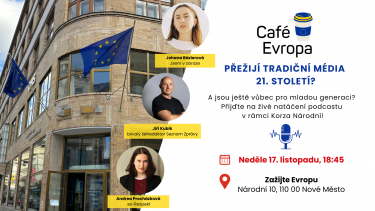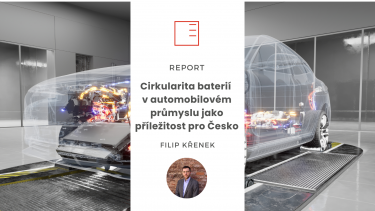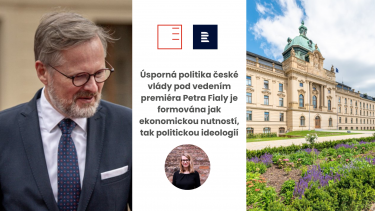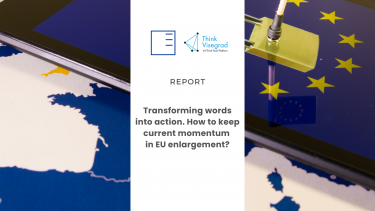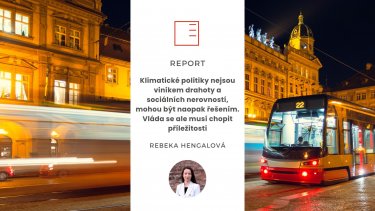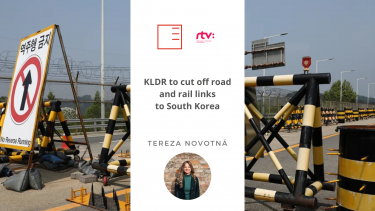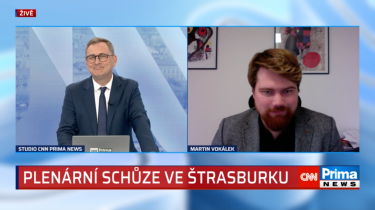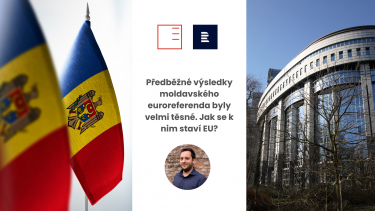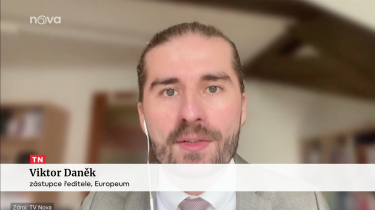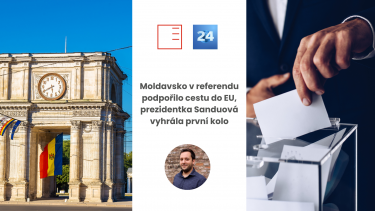Café Evropa | Public podcast recording - Will traditional media survive the 21st century?
How is media created today? Do they interest the younger generation? And do the traditional ones have a chance to survive the 21st century - or will other platforms replace them? Come and discuss with our guests on the live Café Evropa podcast and celebrate 35 years of freedom of speech, so pop by Korzo Národní for the celebrations!
Show more
Report | Battery circularity in the automotive industry as an opportunity for the Czech Republic
The report "Battery Circularity in the Automotive Industry as an Opportunity for the Czech Republic" addresses key issues in the development of the battery industry in the Czech Republic, with an emphasis on the circular economy, recycling and reuse of batteries. The study, which was produced in cooperation between EUROPEUM think tank and experts in the field of batteries and electromobility, shows that although the Czech market is still lagging behind in the development of battery production and recycling, its potential is huge - from raw material extraction to component production to battery recycling, which would significantly strengthen the resilience and environmental sustainability of the Czech economy.
Show more
Radio Prague International | The Czech government's austerity policies under Prime Minister Petr Fiala are shaped by both economic necessity and political ideol
Rising inflation, stagnant wages and the housing crisis are fuelling discontent. Meanwhile, the deficit continues to grow without significant investment in long-term economic growth. Klára Votavová, an associate research fellow at EUROPEUM Institute, commented on the situation for Radio Prague International.
Show moreReport | Transforming words into action. How to keep current momentum in EU enlargement?
On the 3rd of October, Think Visegrad in Brussels, represented by the Brussels Office of EUROPEUM Institute for European Policy, organized a discussion titled "Transforming words into action. How to keep current momentum in EU enlargement?". Experts from think tanks, diplomatic missions and EU institutions dwelled into the renewed focus on EU enlargement, including the initiation of accession negotiations with Ukraine and Moldova, the formulation of new strategies and financial incentives for candidate states, and reinforced commitments from the EU. The key challenge moving forward is ensuring that this momentum is sustained and translated into concrete, transformative actions that deliver measurable results.
Show more
Report | Climate policies are not the culprit of high costs and social inequalities, but can be the solution. But the government must seize the opportunity
This week, the Government will discuss in the third reading an amendment to the Emissions Trading Act, which also includes so-called household allowances. Under ETS2, these will charge for emissions from road transport and local heating - so they can help invest in infrastructure, renewable energy and support socially vulnerable groups. EUROPEUM Institute research fellow Rebeka Hengalová and others write.
Show moreSTVR | KLDR to cut off road and rail links to South Korea
KLDR has closed all roads connecting the country with South Korea. It accuses it of escalating tensions and has officially designated it as an enemy state. South Korea, on the other hand, warns the KLDR against reckless steps that could lead to the end of its authoritarian regime. Tereza Novotná, associate fellow of EUROPEUM Institute, commented for Slovakian Radio STVR.
Show more
CNN Prima News | Plenary meeting in Strasbourg to decide on budget and loan to Ukraine
MEPs in Strasbourg will vote on a loan of up to 900 billion crowns to Ukraine. This should be covered by the proceeds from frozen Russian assets. Other topics to be discussed include the EU's draft budget for next year and the situation in Lebanon. Martin Vokálek, executive director of EUROPEUM Institute, commented for CNN Prima News.
Show more
ČRo Plus | The preliminary results of the Moldovan Euro-referendum were very close. How does the EU view them?
Moldova is likely to insert a European identity and a pro-European course into the preamble of its Constitution, according to the preliminary results of yesterday's referendum. The Kremlin, which according to the Moldovan government supported the opponents of the referendum, has already questioned the vote. Žiga Faktor, deputy director and head of EUROPEUM Institute's Brussels office, commented for ČRo Plus.
Show more
TV Nova | Politicians running out of patience, want to take action against migration, Brussels agrees
The European Union seems to have turned the wheel in the area of migration in a direction that no one would have expected a few years ago. The issue has also dominated the European Council. Several Member State representatives agreed that we need to toughen up and come up with new solutions. Viktor Daněk, deputy director of EUROPEUM Institute, commented on the main evening news broadcast on TV Nova.
Show moreČT24 | Moldova's referendum supports path to the EU, President Sandu wins first round
Moldovans voted in Sunday's referendum to constitutionally anchor EU accession as a goal for the country. After counting the votes cast, voters decided by a narrow majority to support the country's Western orientation. Current pro-EU President Maia Sandu, who won the most votes in the first round of the simultaneous presidential election, accused "criminal groups" of undermining the referendum. The second round of the head of state election will take place on 3rd November. Žiga Faktor, deputy director of the EUROPEUM Institute and head of Brussels office, commented for ČT24.
Show more
Staroměstské náměstí 4/1
Prague 1 - Staré Město
110 00
tel.: +420 212 246 552
email: europeum@europeum.org
https://www.europeum.org
